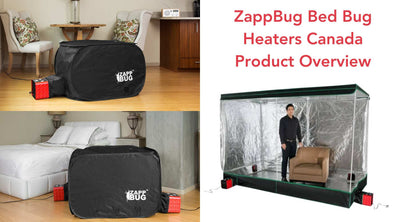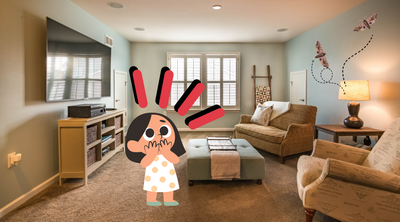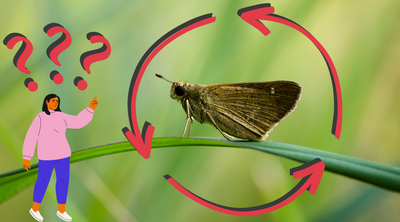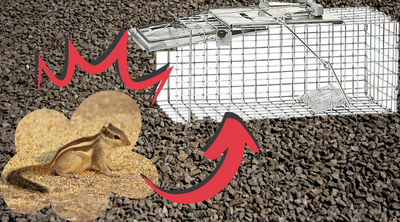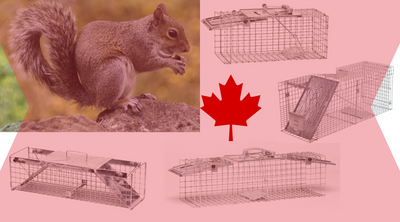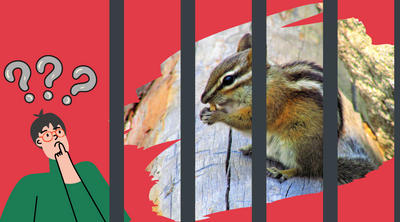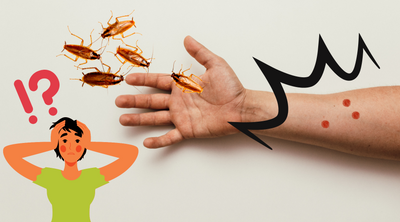Rodents are resourceful animals that can enter homes or buildings through cracks or openings. For instance, a mouse can fit through nickel-sized spaces. Rodents look for shelter indoors, especially during winter and fall because of the harsh temperature.
They can cause electrical fires by chewing through wires. They also carry bacteria like salmonella and contaminate food sources, equipment, and kitchen surfaces. Deer mice can transmit the potentially deadly Hantavirus.
Homeowners may not see a rat or mat unless the rodent problem in their property is severe. It’s important to look for signs of infestation such as stale odour coming from isolated areas and rodent droppings under the sink, around food packages and in cupboards or drawers.
Other common signs of infestation include nesting material like dried plant matter, shredded paper or fabric and chew marks on food packaging. Holes gnawed through floors and walls create entry points for rodents. Here are tips on how to prevent a rodent infestation.
1. Use traps to reduce the population of rodents inside your home
Choose the right snap trap. Put some peanut butter on the bait pan. A pea-sized amount is enough. The baited end should be placed next to the wall. It should form a “T” with the walls so the rodent will run directly into the trap.
Rodents don’t like being noticed and so, they run next to objects or walls for safety. Set traps in areas where there are signs of recurrent rodent activity such as crawlspaces, basements, and attics.
You should also set traps in areas that don’t get regular human traffic. Some rodents such as rats are extremely cautious. They may not approach the traps for several days. Other rodents like deer mice and house mice are less vigilant and may be caught more quickly.
Using live traps or glue traps is not recommended because these traps can scare rodents that are captured live. They might urinate and since their urine might contain germs, you might be exposed to diseases. You should also put traps in outbuildings as well as in areas where they might seek shelter.
Owls, hawks, non-poisonous snakes and other natural rodent predators may help reduce and control the number of rats and mice outside your home. If you placed traps inside your home but you failed to seal all entry points, your pest problem will persist. New rodents will just continue entering your house despite your efforts to control them.

2. Seal holes outside and inside your home
Rats can enter through a half-dollar-sized hole, while mice can go through nickel-sized holes. Seal all holes and gaps on your home’s exterior to prevent them from gaining access to the attic basement and other parts of your house. Check these areas for any cracks, holes, or gaps:
- between the wall juncture and floor
- behind, inside or under stoves, kitchen cupboards and refrigerators
- inside cabinets near floor corners
- inside the attic
- around doors
- in the laundry room and basement floor drains as well as crawlspace
You should look around the floor vents, fireplace, dryer vents, and pipes going to furnaces and hot water heaters. It’s also important to look for gaps outside your house. Check the following:
- Around the foundation
- Windows and doors
- In gables, eaves and rafters
- Under doors
- In crawlspaces and attic vents
- Around holes for gas, cable, electrical and plumbing lines.
Consider weather stripping when you see any gaps and holes around doors and windows. Small holes can be filled with steel wool. Caulk should be placed around the steel wool.
Use metal sheeting or lath screen, cement, lath metal or hardware cloth to repair large holes. You can find these materials at a local hardware store.
Flashing should be used around the base of your house. Gaps in trailer skirting must be fixed as well. If you don’t close all entry points in your house, rodents will just continue to invade your property. You should also seal entry points in the garage and outbuildings.
3. Get rid of nesting areas and food sources
If you want to keep your home rodent proof, you should eliminate any source of food and water they can find.
- Store food in metal or thick plastic containers with tight-fitting lids and don t forget to get rid of spilled food immediately.
- You should also wash cooking utensils and dishes soon after using them.
- Clean your home, campsite, or workplace to prevent contact with rats, mice and other rodents. You should also keep outside grills and cooking areas clean.
- Avoid leaving water bowls or pet food out overnight. Keep pet food, animal feed, and grains in containers with tight lids. If you have bird feeders, keep them away from your home and use squirrel guards to prevent access to the feeders.
- If you are storing food waste and trash inside your house, do so in containers that are rodent proof. Use metal or thick plastic garbage cans with a tight lid. You should also clean the containers with water and soap on a regular basis.
- Get rid of garbage and trash regularly. You should also pick up or get rid of clutter right away.
- Compost bins should be kept as far away from your home as possible. Keep them at least 100' away from your home. It is also important to get rid of possible nesting areas outside your house.
- Elevate garbage cans, hay, and woodpiles at least 1' off the ground. Eliminate old tires, trucks, and cars that rats and mice could use as nesting sites. Keep shrubbery within 100' of your home well-trimmed.
- Rodent-favoured areas such as the attic and basement should stay as well ventilated, dry, and clean as possible. Fix any source of humidity and moisture such as plumbing leaks.
Inspect bags, packages, and boxes before unpacking them inside your home. Keep firewood at least 20 feet away from your house.
Rodents are not only difficult to control, but they also contaminate food with saliva, waste, and fur. A mouse can actually contaminate about ten times the amount of food it consumes.
These pests may carry fleas that can spread illnesses such as the lymphocytic choriomeningitis virus, which mostly affects people with weakened immune systems. This illness may cause fever, meningitis, headaches, and even complications during pregnancy.
How to Handle Infestations
Don’t try to handle wild rodents on your own because they have large teeth and may transmit bacteria and viruses through their urine, saliva, and feces. If you find a rodent inside your home, you should contact a licensed pest management expert for proper rodent control, identification, and removal.
The presence of a single rodent inside a house could be a sign of an infestation. Rodents will bite to defend themselves when they are cornered, so keep pets and children away from these animals.

